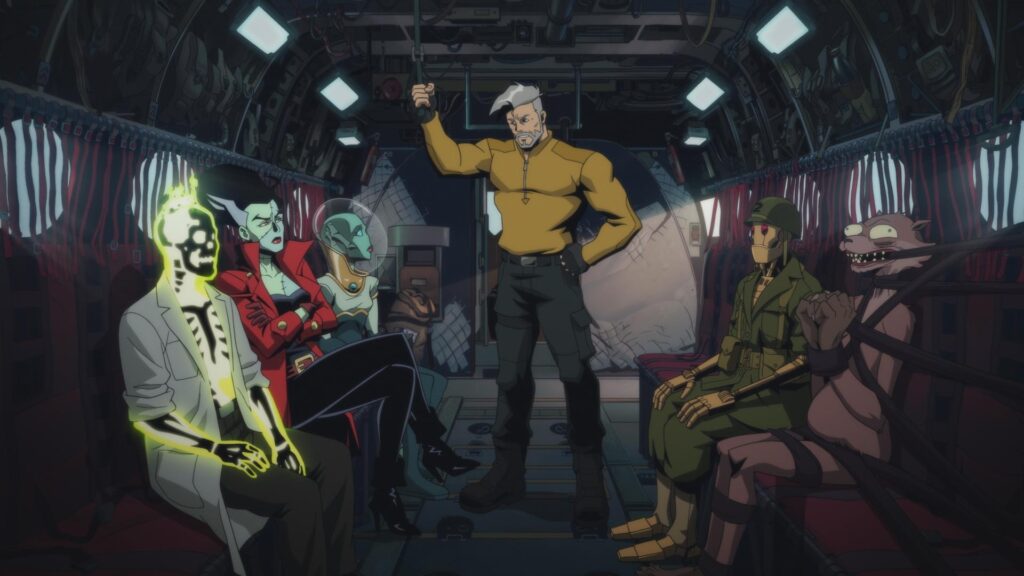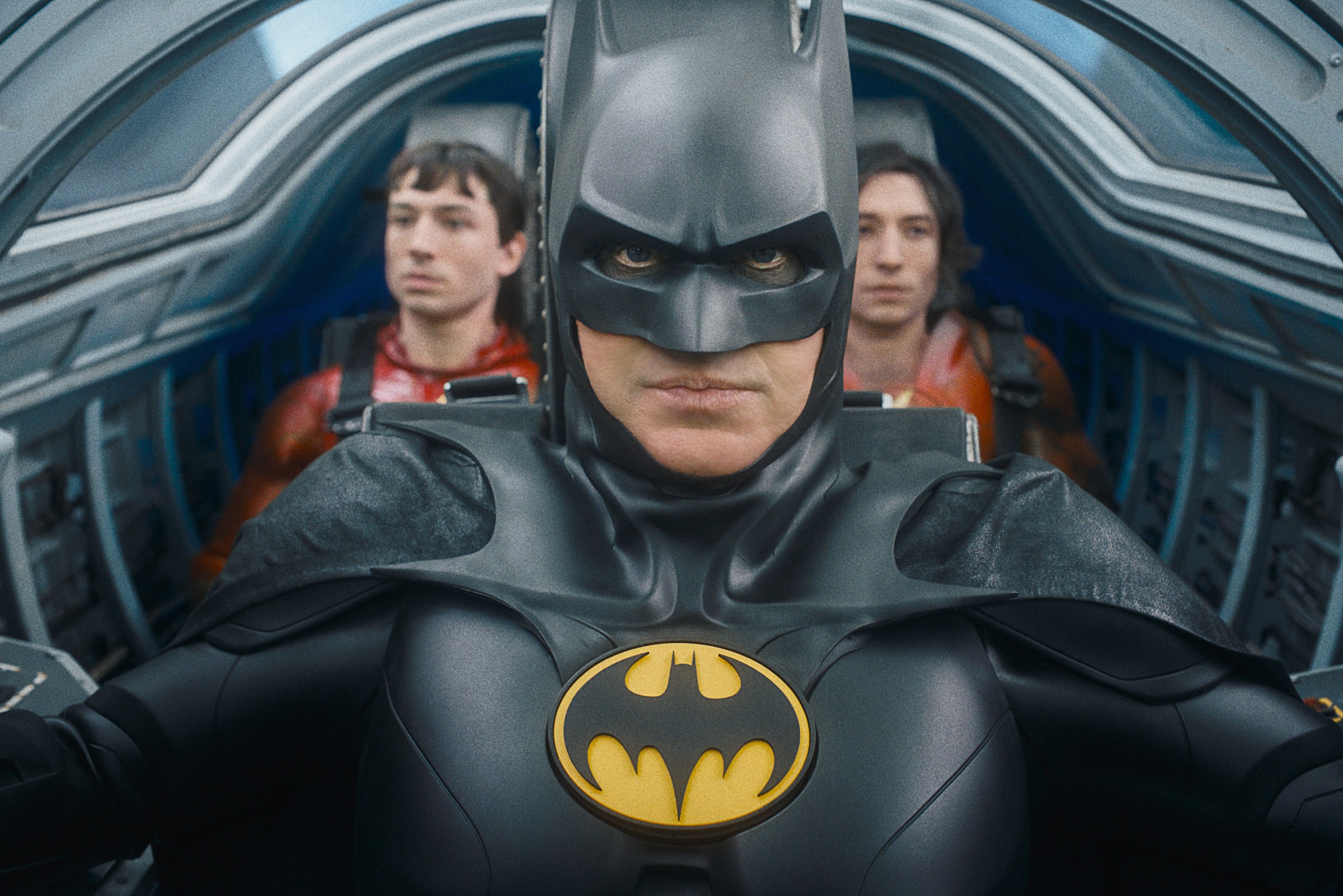With Creature Commandos’ debut on Max this week, the revamped cinematic DC Universe is finally here. True, things won’t really kick off in earnest until next year’s live-action Superman reboot. But even so, Creature Commandos is the first official entry in what DC Studios bosses James Gunn and Pete Safran are calling “Chapter One” of the new DCU. So, the adult animated series represents a fresh start for the increasingly beleaguered big-screen DC brand… kinda.
If you’ve watched Creature Commandos’ two-episode premiere — or paid attention to what Gunn’s been saying these past two years — you’ll know that characters, events, and even actors from the now-defunct DC Extended Universe are still very much in the mix. They’re just part of a world where Viola Davis’ Amanda Waller still exists, but Henry Cavill’s Man of Steel doesn’t. Confused? Of course you are, which is why we’ve pulled together this handy guide to the reset-but-also-not-reset continuity of DC Studios’ shared universe.
Here’s what to know about what’s still canon in the new DCU, what’s not, when Gunn’s going to explain the messy stuff in between, and which DC superhero you can pin the blame on until he does.
[Ed note: This article contains spoilers for Creature Commandos episodes 1 and 2.]
Which DC movies and shows are part of the new DCU canon?
Obviously, Superman and Creature Commandos are both canon in the new DCU. Hell, as the first movie and TV show, respectively, of the Chapter One slate, they’re the most canon. But what else makes the cut? Unsurprisingly, only Gunn’s own legacy DC efforts — 2021 blockbuster The Suicide Squad and its 2022 small-screen spinoff, Peacemaker — definitely still “count” within the new status quo.
This is confirmed from the jump in Creature Commandos season 1, episode 1, “The Collywobbles.” Waller is in the very first scene, and alludes to goings-on in both The Suicide Squad and Peacemaker season 1 in conversation with Frank Grillo’s Rick Flag Sr. — the father of The Suicide Squad’s Rick Jr. Incidentally, Grillo is already locked in to reprise the Rick Sr. role in Peacemaker season 2, further cementing the show’s position within the overhauled DCU. Oh, and one of Rick Jr.’s teammates, Weasel, shows up as part of Waller’s latest squad of weaponized misfits as well (once again voiced by Sean Gunn). Another veteran of Gunn’s corner of the DCU that was, Steve Agee, is back as Waller’s flunky John Economos later in Creature Commandos season 1.
So, basically, Gunn’s approach to preexisting canon at the dawn of the DCU Chapter One is simple: Anything explicitly depicted or referenced on screen going forward is back in play; everything else ain’t. He said as much in a recent interview. “In Creature Commandos, you’ll hear them talk about things that happened in Suicide Squad or Peacemaker,” Gunn told IGN in November 2024. “Well then, those things automatically become canon.”
This is an important distinction, as it’s the only thing stopping the wider pool of legacy shared universe content from flooding into the DCU Chapter One. For example, Waller is in the original Suicide Squad movie and briefly cameos in Black Adam; meanwhile, Economos gets a few minutes of screen time in Shazam! Fury of the Gods. This technically puts them in the running for canonical status. But neither flick gets a shoutout at any point in Creature Commandos’ initial seven-episode run, so they exist outside the new DCU.
Wait, what about the Justice League’s cameo in Peacemaker season 1?
Yeah, that’s a tricky one. The memorable moment in Peacemaker season 1’s finale when several members of the DCEU-era Justice League — notably, Jason Momoa’s Aquaman and Ezra Miller’s Flash — arrive too late to save the day doesn’t really gel with Gunn’s big-picture vision for the DCU Chapter One. After all, it effectively renders the League’s previous stand-alone and team-up adventures canon, when Gunn is out to do the opposite.
More importantly, it needlessly complicates the onboarding of incoming Superman David Corenswet. Without getting too deep into spoilers, an upcoming Creature Commandos installment leaves viewers in no doubt that Corenswet, not Cavill, is the Superman that John Cena’s Peacemaker would’ve cussed out over his tardiness in the finale. But that would mean Corenswet’s Last Son of Krypton coexists with the Momoa Aquaman and the Miller Flash… somehow. And that the likes of Man of Steel and Batman v Superman: Dawn of Justice are still canon, only with Corenswet retroactively subbed in for Cavill. Right?
Wrong. According to Gunn’s IGN interview, Peacemaker’s Justice League scene is the new DCU’s first major continuity inconsistency and will be explained away further down the line. “The truth is almost all of Peacemaker is canon with the exception of [the] Justice League [scene]… which we will kind of deal with in the next season of Peacemaker,” Gunn promised.
Need an explanation for the new DCU’s canon inconsistencies now? Just blame the Flash
So, any wrinkles in the DCU’s composite canon will get ironed out when Peacemaker season 2 drops in August 2025. That’s not too far off — unless (like most genre heads) you’re a continuity obsessive. Fortunately, there’s a stopgap solution you can use until then: just blame it all on the Flash. While the Scarlet Speedster’s self-titled 2023 solo outing didn’t quite hit the reset button on the DCEU the way many folks expected it would, it did make the franchise’s lore a lot less fixed than before.
Not only did The Flash introduce the multiverse mechanic to the DCEU, but it also established that tinkering with the timeline — and Barry Allen does plenty of that — could have wildly unpredictable knock-on effects. It’s how Ben Affleck’s Batman winds up supplanted by the Michael Keaton and George Clooney versions over the course of The Flash’s run time.
What does any of this mean for James Gunn’s DCU? Well, maybe Creature Commandos and its ilk take place on one of The Flash’s infinite alternate Earths, a world identical to the DCEU in many ways and very different in others (such as the appearance and history of its Superman)? Or maybe it’s the product of additional, off-screen time-travel shenanigans by Barry post-The Flash? In this scenario, Barry unwittingly rewrote all of the DCU’s previous history except for The Suicide Squad and (most of) Peacemaker season 1, presumably while trying to reverse some of the unexpected changes he wrought during The Flash’s climax (i.e., the Cloonification of Bruce Wayne). It’s messy, but it works — not unlike the DCU 2.0 itself.


